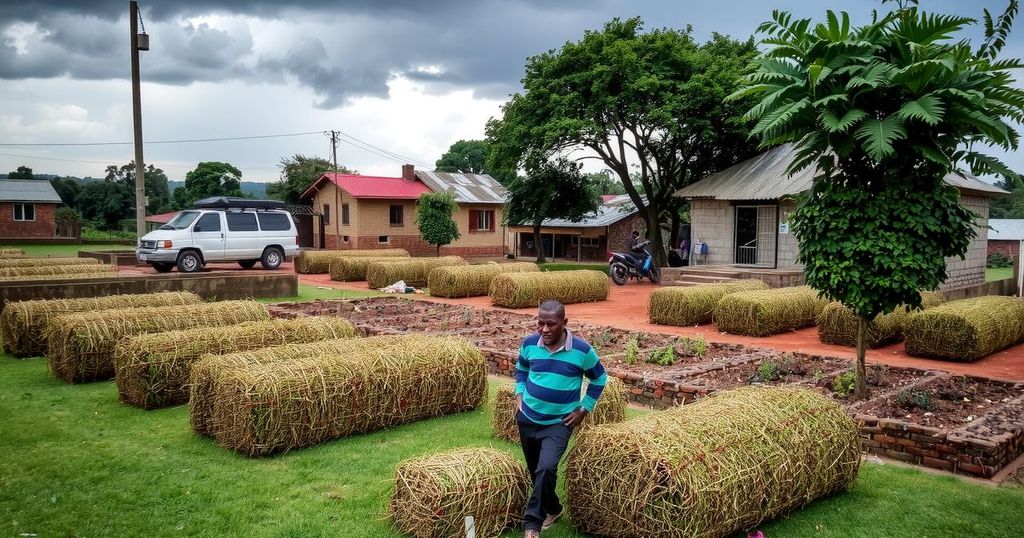Climate Change Impacts Threaten Malawi’s Development Aspirations

Malawi’s development goals are jeopardized by extreme weather events linked to climate change, resulting in significant economic losses and challenges to recovery. The country faces immense financial burdens from repeated disasters, with a call for increased climate finance to support adaptation and rebuilding efforts as it strives for sustainable development by 2063.
Malawi faces severe challenges in achieving its development goals due to the repeated impacts of extreme weather events, primarily driven by climate change. Since 2015, the country has endured significant disasters, including Tropical Storm Ana and several cyclones, which have collectively incurred an estimated economic loss of approximately USD 1.19 billion. The Department of Disaster Management Affairs (Dodma) anticipates recovery costs could reach USD 1.7 billion, predominately aimed at reconstructing the agricultural sector, the backbone of the economy.
The World Meteorological Organization has reported that African nations, including Malawi, are experiencing annual GDP losses of 2-5% due to climate-related calamities such as floods and droughts. Notably, the adaptation costs for Sub-Saharan Africa could range between USD 30-50 billion annually over the next decade, highlighting the urgent need for financial support and sustainable adaptation strategies.
In 2019, Cyclone Idai caused immense destruction in Malawi, killing hundreds and displacing thousands while obliterating critical infrastructure. Residents like Pilirani Mtupa has shared how her agriculture-based livelihood was devastated by subsequent storms, leaving many unable to rebuild their homes. Tragically, Cyclone Freddy in 2023 also left profound impacts, with significant loss of life and infrastructure costing USD 506.7 million.
The effects of climate change continue to pose significant barriers to Malawi’s vision of economic growth and resilience. President Lazarus Chakwera declared a state of disaster in response to the impacts of El Niño, which has further deteriorated agricultural output. Meanwhile, the government’s ambitions outlined in the Malawi 2063 development agenda face plausible delays, with experts fearing the country may not achieve its stated economic growth targets.
Former President Joyce Banda has called for increased international climate finance, emphasizing that developing nations like Malawi require substantial investment for adaptation and rebuilding efforts totaling approximately USD 1.3 trillion annually through 2030. Without the necessary support, the aspirations for Malawi to transform into a self-sufficient, industrialized country may remain unattainable, continuously thwarted by the relentless cycles of climate-induced disasters.
The ongoing climatic crises in Malawi, characterized by repeated tropical storms and cyclones, have severely impacted the nation’s economic stability and growth. The country has witnessed extensive damage to vital sectors such as agriculture, which is crucial for both food security and economic sustenance. The adverse effects of these climatic events are projected to challenge Malawi’s developmental plans, including its long-term objective of becoming a wealthier, self-reliant nation by 2063. With increasing losses attributed to natural disasters, external support for climate adaptation has emerged as a significant need.
Malawi’s development trajectory is critically threatened by the escalating impacts of climate change, as evidenced by significant economic losses resulting from extreme weather events. The ongoing struggle to recover from disasters like Cyclone Ana and Cyclone Freddy, coupled with the challenges posed by El Niño, necessitate urgent international support and adaptive measures. The aspirations articulated in the Malawi 2063 development agenda may not be realized without substantial investments and effective strategies to enhance the nation’s resilience to climate-induced disruptions.
Original Source: dialogue.earth






